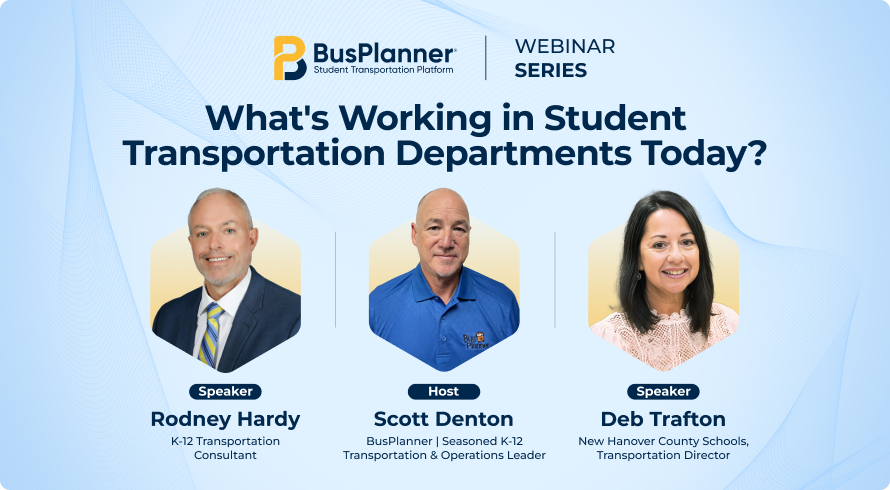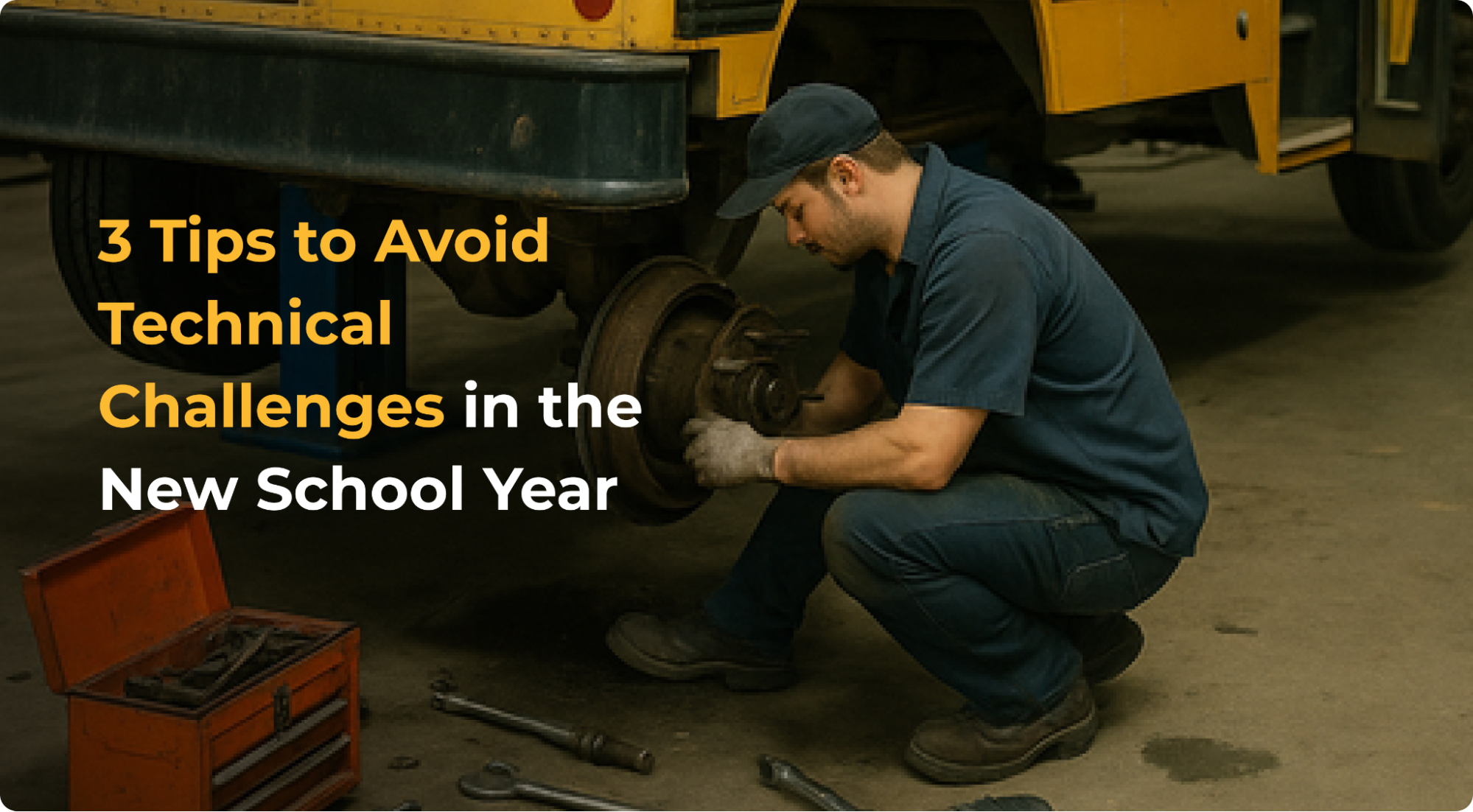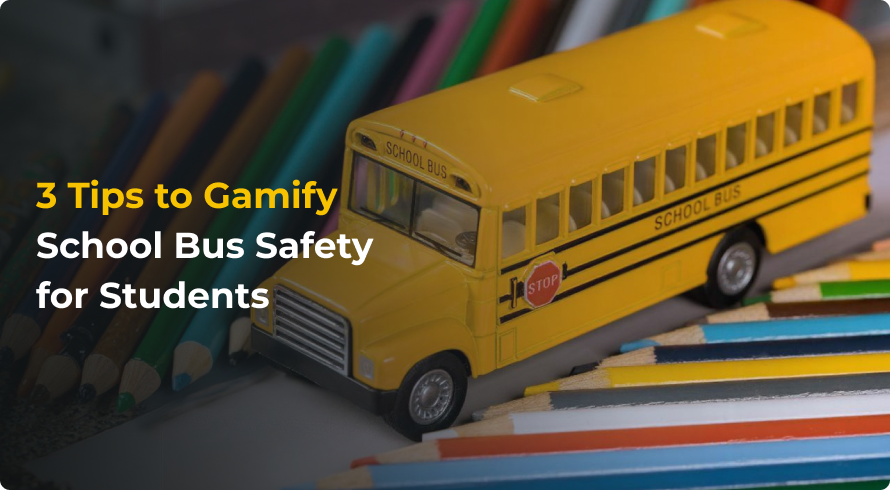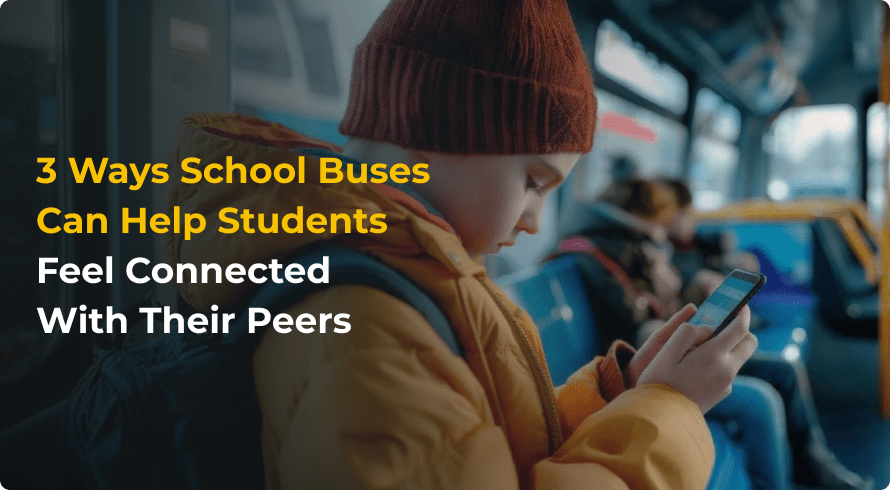In school transportation, resources are often limited, challenges can be complex, and expectations for safety and service keep rising. So the real question for every transportation leader is: What’s actually working today?
As part of our BusPlanner Webinar Series, Scott Denton hosted a webinar with two experienced North Carolina transportation leaders to answer exactly that.
Deb Trafton, Director of Transportation for New Hanover County Schools, and Rodney Hardy, K-12 transportation consultant, shared concrete strategies that are delivering results in districts right now.
Leading Organizational Change Starts with Trust
Both speakers agreed that before you can change routes, adopt new technology, or improve service, you have to win your people’s trust.
When Deb started working as a transportation director during COVID, she faced a skeptical team and severe driver shortages. Instead of imposing top-down solutions immediately, she started with meetings to allow staff to share their thoughts freely. She shared how consistent communication helped win over her team:
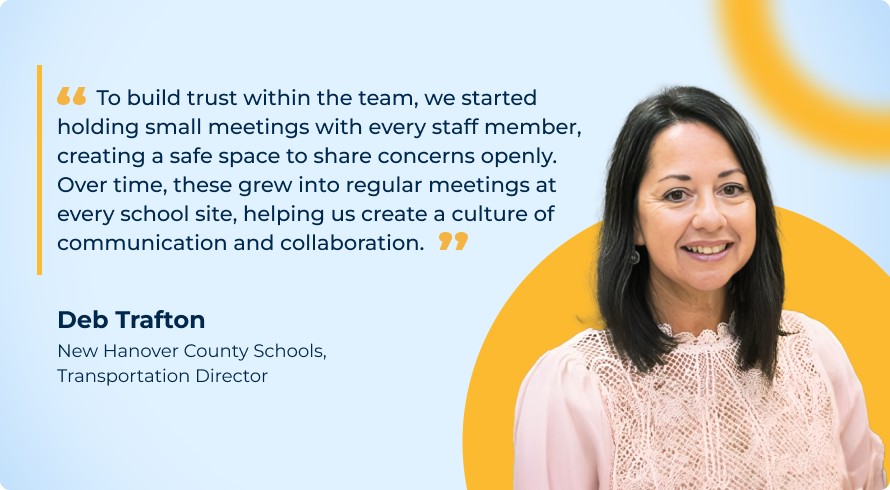
Rodney shared a similar lesson from his career. He inherited a department with low morale and deep mistrust of leadership. His first goal wasn’t redoing routes or cutting costs; it was creating harmony in the garage. By showing genuine care for his team, he laid the foundation for all future improvements.
Changing the Culture to Embrace Improvement
Winning trust is just the first step. Sustaining progress means changing the culture. Deb and Rodney shared that the staff had grown used to doing things the same way for years, resistant to new ideas or technologies. Deb called this shift her department’s biggest success: moving from being “complicit and comfortable” with old methods to embracing modern practices.
But that didn’t mean moving fast for its own sake. Change happened through patient conversations, collaborative problem-solving, and helping staff see how new approaches would make their jobs easier and their service better for students.
For both transportation leaders, culture change wasn’t an overnight project. It meant consistent communication, listening tours, small group meetings, and genuine collaboration.
Technology That Delivers Real Results
The fireside chat also explored what kinds of technology are actually helping transportation departments today.
Rodney highlighted the impact of GPS, not just for tracking buses but for tying driver pay to actual sign-in and sign-out times, reducing waste, and improving accountability. For his district, GPS was more than an upgrade; it was transformative. Here is what he had to say:
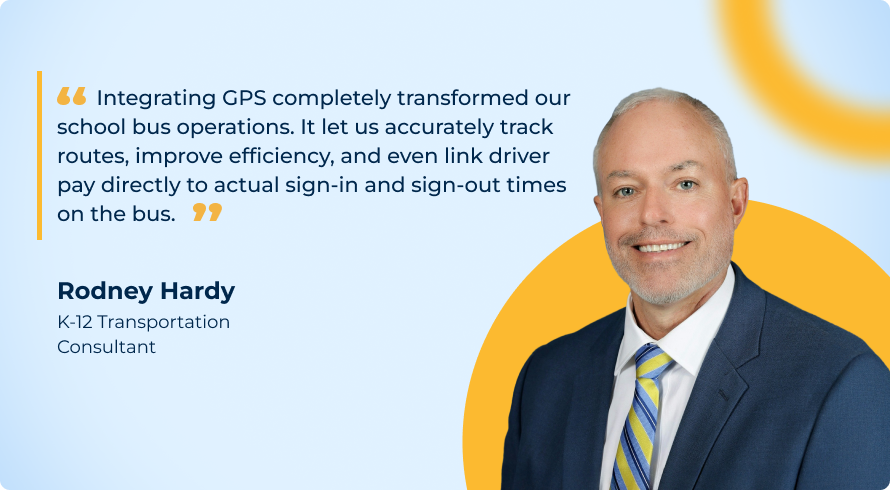
Deb emphasized the importance of modern, all-in-one platforms that combine routing, telematics, and camera systems. These tools let staff investigate safety concerns quickly from their desks, freeing time and improving service to families.
She also highlighted that often, the problem isn’t a lack of tools; it’s not using them well; “We have apps we’re using as little as 10% to 70% of what they can do. Now we’re investing the time to really know our products and use them to their full capacity.”
This is an important point for any department. New purchases might sound exciting, but squeezing more value from existing systems can deliver the biggest gains.
Making the Most of Tight Budgets
In this session, the speakers addressed the challenge of budget constraints and shared how its getting even worse as pandemic relief funding runs out.
Rodney described some districts pulling back on advanced technology features or reevaluating bell schedules to run more efficient routes.
Deb shared how her district has offset lost funding by doubling down on recognition and culture to help retain drivers: “We’re promoting the amazing culture that we have here and recognising our staff in any possible way that we can.”
Instead of expensive incentives, they focused on public recognition at board meetings, fostering a sense of pride and belonging that money alone can’t buy.
Listening and Adapting Continuously
Deb and Rodney stressed that improvement is an ongoing commitment to listening, learning, and adapting.
Whether through open meetings at schools, or analyzing real-time data from routing software, both Deb and Rodney emphasized the need for continuous feedback to keep transportation running safely, efficiently, and sustainably.
Takeaways for Transportation Leaders
Here are some of the most important messages for student transportation professionals:
- What works in student transportation today isn’t just technology or policy; it’s people.
- You need their trust before you’ll get their best.
- Communication, recognition, and listening are just as critical as routing software or GPS.
- And you can do all of that, even on a tight budget.
We’re grateful to Deb Trafton and Rodney Hardy for sharing their honest reflections on what it really takes to lead change in student transportation today. For more detailed insights, check out the complete webinar: https://busplanner.com/webinar/fireside-chat-whats-working-in-student-transportation-departments-today/




















